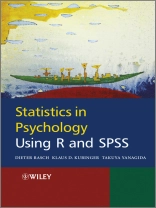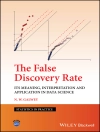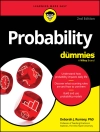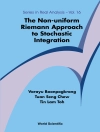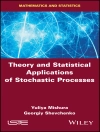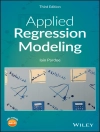Statistics in Psychology covers all statistical methods
needed in education and research in psychology. This book looks at
research questions when planning data sampling, that is to design
the intended study and to calculate the sample sizes in advance. In
other words, no analysis applies if the minimum size is not
determined in order to fulfil certain precision requirements.
The book looks at the process of empirical research into the
following seven stages:
* Formulation of the problem
* Stipulation of the precision requirements
* Selecting the statistical model for the planning and
analysis
* The (optimal) design of the experiment or survey
* Performing the experiment or the survey
* Statistical analysis of the observed results
* Interpretation of the results.
Cuprins
Introduction.
1 Concept of the Book.
2 Measuring in Psychology.
2.1 Types of psychological measurements.
2.2 Measurement techniques in psychological assessment.
2.3 Quality criteria in psychometrics.
2.4 Additional psychological measurement techniques.
2.5 Statistical models of measurement with psychologicalroots.
3 Psychology: An Empirical Science.
3.1 Gain of insight in psychology.
3.2 Steps of empirical research.
4 Definition: Character, Chance, Experiment, and Survey.
4.1 Nominal scale.
4.2 Ordinal scale.
4.3 Interval scale.
4.4 Ratio scale.
4.5 Characters and factors.
II Descriptive Statistics.
5 Numerical and graphical Data Analysis.
5.1 Introduction to data analysis.
5.2 Frequencies and empirical distributions.
5.3 Statistics.
5.4 Frequency distribution for several characters.
III Inferential Statistics for one Character.
6 Probability and distribution.
6.1 Relative frequencies and probabilities.
6.2 Random variable and theoretical distributions.
6.3 Quantiles of theoretical distribution functions.
6.4 Mean and variance of theoretical distributions.
6.5 Estimation of unknown parameters.
7 Assumptions: Random Sampling and Randomization.
7.1 Simple random sampling in surveys.
7.2 Principles of random sampling and randomization.
8 One Sample from one Population.
8.1 Introduction.
8.2 The Parameter mof acharacter modeled by a normallydistributed random variable.
8.3 Planning a study for hypothesis testing with respect tom.
8.4 Sequential tests for the unknown parameter m.
8.5 Estimation, hypothesis testing, planning the study, andsequential testing concerning other parameters.
9 Two Samples from two Populations.
9.1 Hypothesis testing, study planning and sequential testingregarding the unknown parameters m1 andm2.
9.2 Hypothesis testing, study planning and sequential testingfor other parameters.
9.3 Equivalence testing.
10 Samples from more than two Populations.
10.1 The various problem situations.
10.2. Selection procedures.
10.3 Multiple comparisons of means.
10.4 Analysis of variance.
IV Descriptive and Inferential Statistics for two Characters.
11 Regression and Correlation.
11.1 Introduction.
11.2 Regression model.
11.3 Correlation coefficients and measures of association.
11.4 Hypothesis testing and planning the study concerningcorrelation coefficients.
11.5 Correlation analysis in two samples.
V Inferential Statistics for more than two Characters.
12 One Sample from one Population.
12.1 Association between three or more characters.
12.2 Hypothesis testing concerning a vector of meansm.
12.3 Comparisons of means and ‘homological’ methods for matchedobservations.
13 Samples from more than one Population.
13.1 General linear model.
13.2 Analysis of covariance.
13.3. Multivariate analysis of variance.
13.4 Discriminant analysis.
VI Model Generation and Theory-Generating Procedures.
14 Model Generation.
14.1 Theoretical basics of model generation.
14.2 Methods for determining the quality and excellence of amodel.
14.2.1 Goodness of fit tests.
14.2.2 Coefficients of the goodness of fit.
14.2.3 Cross-validation.
14.4 Simulation: Non-analytical solutions to statisticalproblems.
15 Theory-Generating Procedures.
15.1 Descriptive statistics’ methods.
15.2 Methods of inferential statistics.
Despre autor
Dieter Rasch, Department of Applied Statistics, University of Life Sciences, Vienna
Klaus D. Kubinger, Division of Psychological Assessment and Applied Psychometrics, University of Vienna
Takuya Yanagida, Division of Psychological Assessment and Applied Psychometrics, University of Vienna
